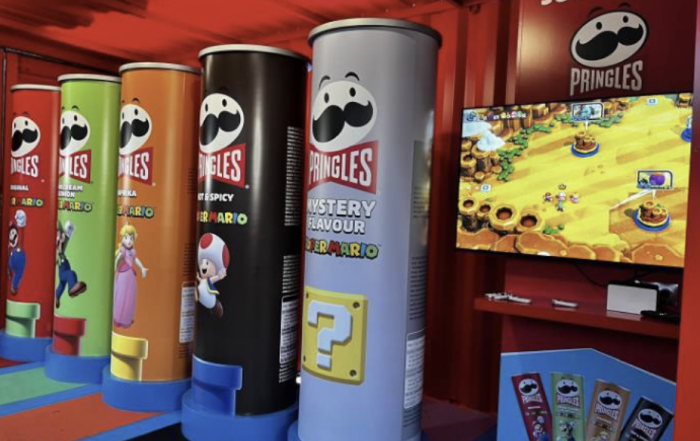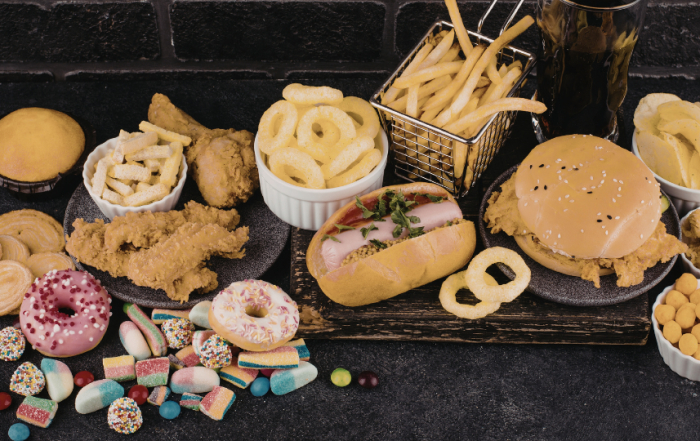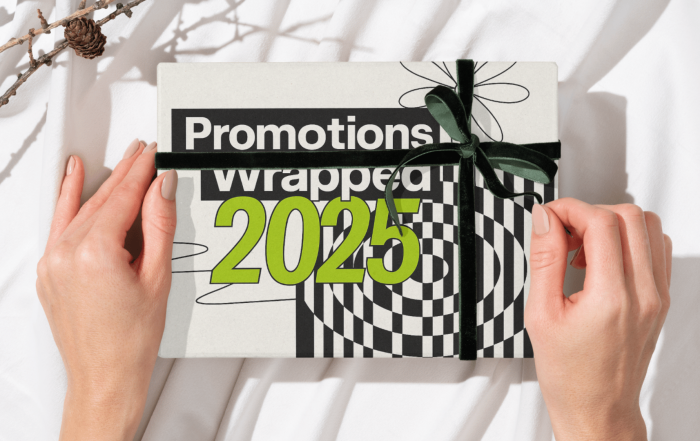




How do travel incentives stand out from cash rewards & vouchers?
Sophie: Travel is priceless because of the emotional connections you can create. Whether it’s quality time with family, a getaway with colleagues, or a remote solo adventure, these memories last a lifetime.
Emma: Given the current economic climate as well, most people who win cash prizes often don’t use them for holidays or experiences. Instead, they tend to be sensible and use the money for practical expenses. That’s why offering a travel-based prize as part of a promotion or incentive is increasingly effective – it encourages winners to step outside their ordinary routines and indulge in a luxury they might not otherwise prioritise.
Sophie: Absolutely, Emma. It’s all about making memories through connections to new places, people and adventures. You remember a holiday you won with Coca-Cola much more than prize money you spent on bills or a new sofa. These deeply personal experiences forge intimate ties with the brand, capturing immediate attention and leaving a lasting bond.

How do travel incentives stand out from cash rewards & vouchers?
Sophie: Travel is priceless because of the emotional connections you can create. Whether it’s quality time with family, a getaway with colleagues, or a remote solo adventure, these memories last a lifetime.
Emma: Given the current economic climate as well, most people who win cash prizes often don’t use them for holidays or experiences. Instead, they tend to be sensible and use the money for practical expenses. That’s why offering a travel-based prize as part of a promotion or incentive is increasingly effective – it encourages winners to step outside their ordinary routines and indulge in a luxury they might not otherwise prioritise.
Sophie: Absolutely, Emma. It’s all about making memories through connections to new places, people and adventures. You remember a holiday you won with Coca-Cola much more than prize money you spent on bills or a new sofa. These deeply personal experiences forge intimate ties with the brand, capturing immediate attention and leaving a lasting bond.
“You remember a holiday you won with Coca-Cola much more than prize money you spent on bills or a new sofa.”
How do you select destinations and experiences to include in travel incentives and prize packages?
Sophie: The choice is often client-driven, considering their objectives, budget, and demographic. It’s essential to understand what the client wants to achieve and tailor the experience accordingly. Are they looking to drive new product trial, boost employee morale, or increase brand awareness? Something I always ask is ‘What do you want to make people feel like at the end of their trip?’
Emma: Ultimately, it’s about creating a perfect match between the destination, the experience, and the audience. While trekking through ancient cities can be an incredible experience, it might not be suitable for everyone, especially those who aren’t keen on adventure travel. On top of that, we also consider travel trends and consumer interests which are always evolving. According to our recently published whitepaper ‘The Joy of Travel‘, 47% of Brits are seeking out cultural exploration and educational experiences, so keeping our finger on the pulse is essential to make sure our packages are relevant and exciting.
Sophie: Reflecting the brand’s core values is also a priority. For instance, a company focused on sustainability might opt for an eco-friendly destination or a conservation-focused travel experience. Likewise, a health brand might opt for a wellness retreat or something more adrenaline-fuelled like off-grid mountain biking. The prize should never be just a trip but an expression of the brand. Seasonality can also impact the choice of destination. We need to consider the best time of year to visit certain places.

What makes authenticity a key factor in today’s travel experiences?
Sophie: Authenticity is everywhere. Many travellers today are not just looking for postcard-perfect destinations. They’re looking for experiences that really offer a glimpse into the culture, history, and people of the places they visit. Imagine the difference between eating pasta in a local Italian family’s kitchen versus a five-star restaurant – both are great, but one offers a deeper connection to the culture.
Emma: Social media platforms like Instagram and TikTok have played a crucial role in this shift by enhancing the discoverability of new destinations and activities. When influencers share their visits to places like the Trevi Fountain, from unexpected angles and without the usual crowds, it piques interest and drives a sense of FOMO. But it’s important to distinguish between ‘Insta vs. reality’ content, which highlights the contrast between polished, curated posts and authentic, behind-the-scenes perspectives. Some travellers seek the newest hottest spots whilst others seek unfiltered experiences that match the genuine feel of a destination. In the past, travellers relied on travel agencies for inspiration and travel tips. Now, they turn to social media platforms like Instagram.
Sophie: This ties into promotions as well because user-generated content taken by prize winners builds that layer of authenticity and reliability. Sometimes, people wonder whether these big competitions are genuine and if winners actually get to enjoy such amazing trips. Seeing real people share real journeys helps spread awareness and builds trust in the brand and its offerings.
“In the past, people relied on travel agencies for inspiration. Now, they turn to Instagram.”
Does group travel have the same appeal as solo travel?
Sophie: There’s a common belief that experiences are better when shared. Witnessing the Northern Lights with your family, for example, enhances the magic of the moment. But solo travel offers a different kind of connection with the destination. It provides the freedom to explore at your own pace, delve deeper into local cultures, and create a journey tailored entirely to your interests, whether that’s an immersive solo trip or a city couple getaway.
Emma: Group travel tends to provide access to those money-can’t-buy experiences, like a private journey on the Orient Express, including exclusive stops and events—something impossible for a solo traveller. From an incentive perspective, group travel fosters a sense of camaraderie and connection among teams. This shared experience boosts morale and loyalty to the brand. In fact, 48% of senior leaders believe that incentive travel is a strategic differentiator within their business, and 53% see it as a ‘must-have’ in their budgets. This underscores the importance of travel as a trusted motivator for both individuals and a strategic tool for businesses.

What trends are you seeing in the travel prize and incentive industry right now, particularly in terms of destinations and activities?
Sophie: While some destinations, like Rome, Paris, and New York, are consistent favourites, we’re also seeing a push towards discovering unique, off-the-beaten-path places like Bulgaria and Tokyo. These can start as niche interests but quickly become popular in the mainstream. There’s a growing focus on wellness and moderation. With the rise in low-alcohol and no-alcohol trends, incentives have to now cater to varied preferences, reflecting changing consumer attitudes toward alcohol.
Emma: Authenticity, as we talked about previously, is a massive trend right now. Wellness is becoming a bigger part of the conversation, not just as a specific type of trip, like spa retreats, but as an integral part of travel experiences. Which ties back to the essence of travel, which is not only about seeing new places, but also about rejuvenating the mind and body.
Thank you Cloud Nine Incentives for sharing valuable insights into the evolving trends in travel prizes and incentives. If anyone would like a copy of the whitepaper The Joy of Travel, please click the link.
“You remember a holiday you won with Coca-Cola much more than prize money you spent on bills or a new sofa.”
How do you select destinations and experiences to include in travel incentives and prize packages?
Sophie: The choice is often client-driven, considering their objectives, budget, and demographic. It’s essential to understand what the client wants to achieve and tailor the experience accordingly. Are they looking to drive new product trial, boost employee morale, or increase brand awareness? Something I always ask is ‘What do you want to make people feel like at the end of their trip?’
Emma: Ultimately, it’s about creating a perfect match between the destination, the experience, and the audience. While trekking through ancient cities can be an incredible experience, it might not be suitable for everyone, especially those who aren’t keen on adventure travel. On top of that, we also consider travel trends and consumer interests which are always evolving. According to our recently published whitepaper ‘The Joy of Travel‘, 47% of Brits are seeking out cultural exploration and educational experiences, so keeping our finger on the pulse is essential to make sure our packages are relevant and exciting.
Sophie: Reflecting the brand’s core values is also a priority. For instance, a company focused on sustainability might opt for an eco-friendly destination or a conservation-focused travel experience. Likewise, a health brand might opt for a wellness retreat or something more adrenaline-fuelled like off-grid mountain biking. The prize should never be just a trip but an expression of the brand. Seasonality can also impact the choice of destination. We need to consider the best time of year to visit certain places.


What makes authenticity a key factor in today’s travel experiences?
Sophie: Authenticity is everywhere. Many travellers today are not just looking for postcard-perfect destinations. They’re looking for experiences that really offer a glimpse into the culture, history, and people of the places they visit. Imagine the difference between eating pasta in a local Italian family’s kitchen versus a five-star restaurant – both are great, but one offers a deeper connection to the culture.
Emma: Social media platforms like Instagram and TikTok have played a crucial role in this shift by enhancing the discoverability of new destinations and activities. When influencers share their visits to places like the Trevi Fountain, from unexpected angles and without the usual crowds, it piques interest and drives a sense of FOMO. But it’s important to distinguish between ‘Insta vs. reality’ content, which highlights the contrast between polished, curated posts and authentic, behind-the-scenes perspectives. Some travellers seek the newest hottest spots whilst others seek unfiltered experiences that match the genuine feel of a destination. In the past, travellers relied on travel agencies for inspiration and travel tips. Now, they turn to social media platforms like Instagram.
Sophie: This ties into promotions as well because user-generated content taken by prize winners builds that layer of authenticity and reliability. Sometimes, people wonder whether these big competitions are genuine and if winners actually get to enjoy such amazing trips. Seeing real people share real journeys helps spread awareness and builds trust in the brand and its offerings.
“In the past, people relied on travel agencies for inspiration. Now, they turn to Instagram.”
Does group travel have the same appeal as solo travel?
Sophie: There’s a common belief that experiences are better when shared. Witnessing the Northern Lights with your family, for example, enhances the magic of the moment. But solo travel offers a different kind of connection with the destination. It provides the freedom to explore at your own pace, delve deeper into local cultures, and create a journey tailored entirely to your interests, whether that’s an immersive solo trip or a city couple getaway.
Emma: Group travel tends to provide access to those money-can’t-buy experiences, like a private journey on the Orient Express, including exclusive stops and events—something impossible for a solo traveller. From an incentive perspective, group travel fosters a sense of camaraderie and connection among teams. This shared experience boosts morale and loyalty to the brand. In fact, 48% of senior leaders believe that incentive travel is a strategic differentiator within their business, and 53% see it as a ‘must-have’ in their budgets. This underscores the importance of travel as a trusted motivator for both individuals and a strategic tool for businesses.


What trends are you seeing in the travel prize and incentive industry right now, particularly in terms of destinations and activities?
Sophie: While some destinations, like Rome, Paris, and New York, are consistent favourites, we’re also seeing a push towards discovering unique, off-the-beaten-path places like Bulgaria and Tokyo. These can start as niche interests but quickly become popular in the mainstream. There’s a growing focus on wellness and moderation. With the rise in low-alcohol and no-alcohol trends, incentives have to now cater to varied preferences, reflecting changing consumer attitudes toward alcohol.
Emma: Authenticity, as we talked about previously, is a massive trend right now. Wellness is becoming a bigger part of the conversation, not just as a specific type of trip, like spa retreats, but as an integral part of travel experiences. Which ties back to the essence of travel, which is not only about seeing new places, but also about rejuvenating the mind and body.
Thank you Cloud Nine Incentives for sharing valuable insights into the evolving trends in travel prizes and incentives. If anyone would like a copy of the whitepaper The Joy of Travel, please click the link.
The winners of the IPM Awards 2024 have been announced, celebrating the most innovative and impactful marketing campaigns across a range of industries. From standout brand activations to breakthrough experiences, this year’s winners have set a new benchmark in promotional marketing.
IPM Awards 2024
The winners of the IPM Awards 2024 have been announced, celebrating the most innovative and impactful marketing campaigns across a range of industries. From standout brand activations to breakthrough experiences, this year’s winners have set a new benchmark in promotional marketing.
News
Pringles × Super Mario: The Boss Level Brand Partnership That Won the IPM Grand Prix
Brand Culture, last year’s IPM Grand Prix winners, reveal how Pringles × Super Mario turned a brand partnership into shelf-side excitement, from the Mystery Flavour “question block” idea to collectable character cans.
HFSS Advertising Regulations: What Marketers Need to Know
HFSS regulations have entered a new phase. This article breaks down what the latest rules mean for marketers, where the key risks sit, and how IPM tools and legal support can help.
Promotions Wrapped! Playing Back the Biggest Trends of 2025
From Superman on The Shard to ‘AI slop’, see what cut through in 2025...






